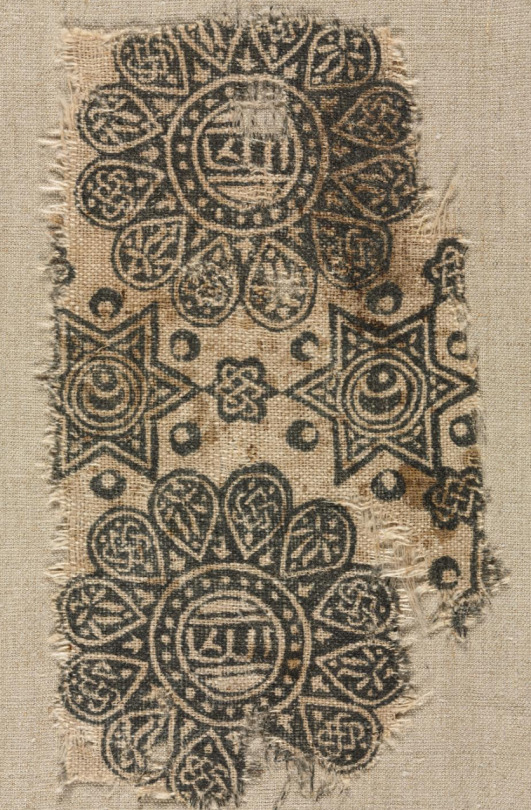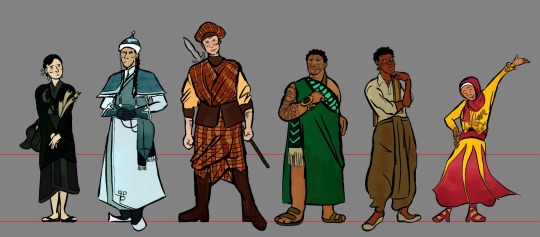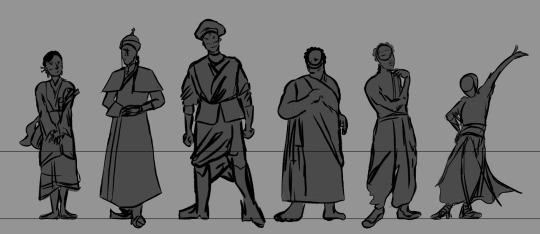#Middle-Eastern cultures
Explore tagged Tumblr posts
Text

Lioness Devouring a Man, Phoenician Ivory Panel, c. 9th-8th century BCE. From the palace of Ashurnasirpal II, Nimrud, northern Mesopotamia, Iraq.
#history#culture#old art#artwork#art#ancient history#mesopotamia#ancient civilizations#anthropology#archaelogy#middle eastern#iraqi#iraq
7K notes
·
View notes
Text
A list of household things which MANY ethnicities seem to think are specific to their culture:
a) a plastic bag stuffed full of other plastic bags
b) cultural/religious knickknacks which your grandparents will scream at you for touching
c) a set of items that are specifically for Company (often the relatives your parents feel the need to impress and/or secretly despise)
d) a very loud woman
e) a butter cookie tin full of sewing supplies
f) mass Tupperware collections and/or ice cream and yogurt containers filled with surprise cold vegetables in the fridge
g) relatives overly involved in the physical appearances, profesional, and reproductive lives of the young women in the family
h) arguing
anyway I think the really interesting cultural identifier is what b) and c) are, because those are a little more specific even if the impulses behind them are not
#Culture#one that feels semi universal to me as an Asian with a bunch of scandi and middle eastern friends is#You take off your shoes by the door#And that leads to all kinds of things with shoe racks or slippers or the family party with forty identical pairs of kids slippers at the do#Or
1K notes
·
View notes
Text



Arabian Dark Academia
Practising Arabic calligraphy, retaping flash cards back onto the wall of notes, kohl-rimmed eyes, translated folklore and classics, layered tops and long skirts, homework assignments written on your palms, self-teaching the mother tongue, mint tea and spicy coffee, writing from right to left, then writing from left to right, ink stains on your hands and cheeks, henna painted hands, long to-do lists, gold on your neck and your hands, dual language notes, detailed diagrams, switching languages mid-speech, headscarves in muted colours, reciting prayers against stress and anxiety, bookshelves filled with western and eastern novels, forgetting words in one language but remembering it in another, chewing the tops of pens and pencils, reapplying roll-on perfume throughout the school day, highlighted lines in textbooks, loud rich laughter bouncing off the corridors where ever the group goes.
You are a student. You are a student descended from foreign parents. You do what you were brought to the West to do. You learn.



#nejj bookblr#books#booklr#studyblr#university#literature#dark academia#light academia#classic academia#romantic academia#reading#arabian#academia#north african#moroccan#middle eastern#fiction#culture#relatable#dark acadamia aesthetic
159 notes
·
View notes
Text

Fragment of a Woodblock Print on Linen. The Cleveland Museum of Art.
From the Mamluk Sultanate of Egypt. 1200s/1300s.
#art#culture#history#middle eastern history#african history#north africa#North African history#egyptian history#egypt#mamluk#mamluk dynasty#the Cleveland museum of art#museum#medieval#medieval history#mamluk sultanate
172 notes
·
View notes
Text
i looooove to be the bearer of bad news so i'll say it: if you keep interchanging races just because they're from the same geographical area then something is wrong buddy
#it starts with i and ends with e#maybe even starts with r and ends with m if i'm being bold#i think the reason this actually pisses me off is not just bc it’s wrong#but bc at some points it’s like 🧍🏻♀️ why are we as poc treated like an aesthetic you can consume#and not as ppl esp bc even if it’s the same area the culture is so different#i saw it with a middle eastern muse which is why i’m even more pissed but like….. it’s so insane#LIKE PLEASE be normal#this isn’t drama bc i see it SO MUCH and bc this is a topic that for some reason we keep repeating#bc man i’m tired
54 notes
·
View notes
Text

Brazil hosts a Lebanese-descended population of 7 to 10 million, exceeding Lebanon's own population of about 5.8 million.
#Lebanese diaspora#Brazil#Lebanon#population statistics#immigration#cultural heritage#Middle Eastern heritage#demographic comparison
81 notes
·
View notes
Text
what's your favourite food that comes from OUTSIDE of your culture
#define your culture however you want#mine has to be either sushi or chicken shawarma#really any middle eastern way of cooking chicken is good if there's like some sauce on it omg those guys know what's uppp#white people make good pizza also i'm sorry to say it. not chain pizza ofc the european kind#chinese fried rice is so good too mmm fried rice#i don't think i've ever actually had any african cuisine very sad because jollof rice looks so good.#txt#there's probably more stuff i'm forgetting but off the top of my head it's fried rice sushi and chicken shawarma
54 notes
·
View notes
Text



Jade Winglet (minus Umber and Carnelian 😢) designs and another Winter/Turtle doodle
#GOD tf2 following I am seriously sincerely sorry with all my heart I apologise for being a deadbeat#dragon autism…. it’s as it was spoken in the prophecy…….. it came back to bite my ass#oh btw here are the cultures they’re vaguely based off#moon - Japanese#winter - Mongolian/northeast Chinese#peril - Scottish#Turtle - Polynesian/Maori#Qibli - South Indian/Middle Eastern#Kinkajou - Indonesian#I needed some uhhh inspirations before actually designing them so where better than actual. yknow. cultures#wings of fire#WoF#WoF art#IceWing#seawing#wof au#wings of fire au#wings of fire art#wings of fire fanart#wof fanart#art#artwork#Quotidianish
235 notes
·
View notes
Text




arabic cassette tapes
#middle east#middle eastern photography#middle eastern history#arabic#arabic music#habibi funk#iraq#lebanon#egypt#middle eastern culture#culture#music#history#cassette#cassette tape#arabia
28 notes
·
View notes
Text
#Palestine#culture#Palestine culture#Gaza culture#Middle Eastern culture#Israel has destroyed everything#bombed places#free Palestine#free gaza#gaza#palestine#America has destroyed everything#America is funding the genocide in Gaza
106 notes
·
View notes
Text
I really think we deserve a random panel of damian wayne going to the bathroom with a water bottle in his hand. just for fun
#I want him to experience culture shock#there is no way that middle eastern boy who has NOT left his grandfather's palace ever in his life just moves to the us and fits right in#where is the discomfort?#where is the awkwardness??#where is him being absolutely disgusted by microwave mac n cheese???#where is him not knowing certain english words??#where is him swearing in arabic when he's stressed??#where is him asking alfred if he can make falafel for brunch????#if you're gonna tell us he's a mixed kid MAKE HIM ACT LIKE ONE GODDAMMIT#damian wayne#damian al ghul#batman#dc#DC comics#thoughts#headcanons
90 notes
·
View notes
Text

Traditional Bahraini attire
#bahrain#bahraini#arabic#arabian#arab#bedouine#khaleeji#folk fashion#folk costume#folk#culture#middle east#middle eastern#west asian
39 notes
·
View notes
Text

Composite album folio, Dancing sufis; Cluster of primrose, calligraphic panels. Artist, Master Murad. Calligrapher, Shah Mahmud al-Nishapuri. Iranian, Safavid Period. 1575 CE.
The Smithsonian National Museum of Asian Art.
#iranian#Iran#safavid#early modern period#early modern history#asian history#iranian history#1500s#art#culture#history#middle eastern history
112 notes
·
View notes
Text
Boyah
Boyah (plural: Boyat) was subcultural identity of AFAB non-binary,tomboy,demi girl & trans-masculine folks of Persian Gulf. Boyat are asigned female at birth,but express gender atypical behaviour. The origin of this queer subculture is unclear, some boyat claimed that it was started through online forums & groups. [citation needed]
Boyah subculture was more visible in Gulf states (including Kuwait,Oman,Saudi Arabia,UAE,Bahrain). Boyah identity may fall under the modern Transgender and Non-binary umbrella. However some people may considered them as people of forth gender.
Sexuality
Boyat folk's sexuality can be confusing in various cultural contexts. Most of the Boyat had intimate and romantic relationships with cis-girls in their past life, but they do not consider themselves as homosexual.
The term Boyah itself does not mean lesbian in arabic.In later life many Boyat had to pursue a heterosexual marriage & had children.Because marriage is a obligatory in local arabic customs.In addition to this, some boyah were androsexual & interested in boys only.
Culture & Lifestyle
Trans-masculine/tomboys/AFAB non-binary/AFAB genderpunk took the “Boyah” cultural identity in their early adolescence. On the otherhand, some boyat took the male role to challenge societal gender norms and stereotypes in Arabic Gulf States.
In general, a boyah is characterized by no make-up, no feminine expressions, no feminine name,feminine pronouns.In boyah subculture, Boyat community may use a massive masculine watches.Boyat people worn loose-fitting male cloth with a touch of the military, vibrantly coloured dresses,shirts and boyah jeans(which are baggy with big prints all over them). Since the age of internet Arab's boyat community started informal groups,online forums.
Most of the boyat have to lead double lives because gulf states has strict cultural gender roles especially for womxn.Many of them are forced to get married.In general Boyah phenomena is considered a disgrace to an arab family's honour.Additionally atypical gender expression is seems to be indecent and deviant in GCC states.Many boyat face stigma for not adhering with rigid patriarchal gender roles.
After leaving home, many undergo a radical transformation,changing their clothes at school/college or a friend's house.While in transition ,they run no real risk of being caught because,while in public, Emirates women are required to wear the national dress - a long black over-garment called an abaya, which makes it easier to switch roles without drawing attention.
Media
In general, Gulf media portrays queerness in negetive ways. A Boyah named Abeer appeared on the Saudi TV Show “Ya Hala” where he/ze said that he/ze was attracted to women while still at school. He/Ze had a complete love relationship with a classmate for a long time. Another person named Hamood joined a show of Radio Sawa where he/ze explained ze was rebelling against social (gender) norms and his/zee family’s restrictions through this boyah phenomena.
On a national television of UAE, a boyah named Bandar openly spoke about his queer relationship with another girl and expressed the desire to marry her and have children with her through IVF. His statement on Abu Dhabi's national television shocked the whole nation.
Decline of Boyah Culture
In the Persian Gulf region, boyah identity became very controversial since 2007. In 2007, the Kuwaiti parliament amended Article 198 of the country’s penal code so that anyone “imitating the opposite sex in any way” could face up to a year in jail and/or a fine of 1,000 dinars ($3,500). A further problem was that the law made no attempt to define “imitating the opposite sex” So it was basically left to the discretion of the police. Within a couple of weeks at least 14 people had been arrested in Kuwait City & thrown into prison. Boyat made their debut as a public concern in 2008 when Dubai police denounced cross-dressing - its chief, Dahi Khalfan Tamim, called on the Ministry of Social Affairs to find out how widespread the practice is and what causes it.
In 2009, Dubai launched a public campaign under the slogan "Excuse Me, I am a Girl", which cautioned against “masculine” behaviour among AFAB queers & tomboys and aimed to steer them towards "femininity". The impetus for this was a moral panic which swept through several Gulf states at that time, regarding the Boyah phenomena. 2 months after announcing the campaign the police persecuted 40 people (for their gender atypical expression), imprisoned them for 3 years in jail.In addition, trans-masculine/trans males,trans women,gender-queers were also shamed & abused by the UAE's police team.
Public Attitudes
Many conservative patriarchal arab people see a greater danger in the Boyah subcultural practices; they fear it can become permanent and cause great distress for the women and their families.
Psychiatrist Yousef Abou Allaban says, "It can go extreme, where they change their sex and have an operation.'' Saudi journalist Yousef Al-Qafari said in an interview on Radio Sawa that family disintegration and lack of true love have led women to act like a man. Al-Qafari said education was the best way to tackle this phenomenon.He called on the Ministry of Education to take up this role.
Social worker Nadia Naseer said, “Families play an essential role in such cases. Families should monitor their female members, especially when they start acting like men by cutting their hair short, wearing men’s clothing, or refusing to wear women’s accessories”. She also said, when a girl or woman does this,she is looking for attention & sending a message that she is a boyah.
Saudi writer Randa Alsheikh, in one of her columns, said that she attended a social gathering where she saw a group of females who appeared almost completely like men.“I would not be exaggerating if I say I could not tell the difference between them and men,” she wrote.She said that they looked, talked and walked like men & “even worse” some appeared to be in their 40s. We need to quickly address this phenomenon to contain these girls so that they are able to build good families and a healthy society,”
#Boyah#Booyah#Boyat#arabic#GCC#Persian Gulf#queer#trans masculine#genderqueer#gender variance#AFAB#Middle Eastern#queer culture#cultural gender identity
262 notes
·
View notes
Text
is there a word or term for someone who feels like they have no connection to a culture? I'm the child of two immigrants from Middle Eastern countries, raised in California.
We didn't celebrate any holidays, I barely know my parent's language, I know very few people from those countries. I have no connection to my home culture nor do I feel like I have any connection to American/Californian culture. It feels devoid and I want to know if anyone else feels this way.
#this isnt a vent#more of a curiousity#theres only one fictional character ive seen that seems to go over this feeling.#idk if this is a bad thing to say as well but i feel as if being middle eastern is like a tertiary race/culture/whatever in america#it feels like theyre just forgettable as a culture/race/whatever (to Americans) so there are no initiatives to show the culture and whatnot
17 notes
·
View notes
Text
April 7th, six months into the war
Since I woke up terrified, and had to run for my bomb shelter. I had to barricade myself in my house in case terrorists came.
I’ve never imagined that this war could happen let alone go on for so long.
People I know died, people I know were kidnapped (and thankfully rescued).
Thousands of rockets were fired, and I’ve had to run for my life countless times. For months my house was rattled by rockets, airplanes and bombings. Even my dogs are scared of random loud noises by now.
I also can’t recall a time *in my life* when so many foreign armies/ terror groups attacked us at once. There was a rise in violence and terror attacks.
Yet people here seem to have lost it: I’ve never saw so much antisemitism and bigotry. I’ve personally been sent death threats and slurs, and been harassed. All from seemingly peaceful and educated people, fuelled by misinformation, antisemitic rhetoric and blood libels.
The new trend is hating & harassing every Jews and Israeli in sight . Calling us Nazis and telling us we deserve it, and then having the nerve saying it’s about Zionism, not antisemitism.
There are currently 133 hostages still kept in captivity by Hamas, along with dozens of bodies
Bring them home now. Silence is unacceptable.
#israel#jewish#israeli#jewblr#israel palestine conflict#gaza strip#טאמבלר ישראלי#ישראל#hamas is isis#human rights#gaza#iran#middle east#middle eastern history#arab israeli conflict#עברית#ישראלי#jumblr#jewish culture is#jewish antizionism#current event#feminism
159 notes
·
View notes